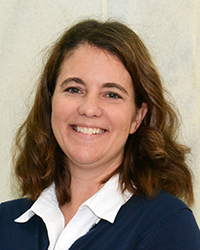Dr. Lesley Cottrell is a Professor and Vice Chair of Research in the Department of Pediatrics in the West Virginia University (WVU) School of Medicine. She has agreed to serve as the Director of WVU Center for Excellence in Disabilities (UCEDD). Dr. Cottrell is Co-Director of the West Virginia Prevention Research Center (WVPRC) and, from 2004-11 led the research component of WVU’s renowned CARDIAC Project (Coronary Artery Risk Detection in Appalachian Communities), which provides screening and intervention to tens of thousands of West Virginia children at risk for heart disease. She has also served as a member of the WVU Faculty Senate since 2005. Most recently, she was selected as the recipient of WVU’s 2015 Women of Science and Health (WISH) award.
Dr. Cottrell received a Ph.D. in Developmental Psychology from WVU. Her training included an NIDA-funded doctoral project examining parental monitoring and adolescent risk behaviors including substance use and unprotected sexual risk. She is a Co-Principal Investigator for the WVU Prevention Research Center and the Vice Chair of Research for the Department of Pediatrics. During her graduate training, she received a NIDA-funded fellowship to examine parental monitoring and adolescent risk behaviors including substance use and unprotected sexual risk.
Dr. Cottrell's research interests examine parental influences on child and adolescent health risk decision-making and behaviors. She has led several national projects designed to examine childhood chronic health issues such as obesity, diabetes, asthma as well as health risks in adolescence related to unhealthy decision making. She recently completed her service as the Principal Investigator on the Marion County, WV portion of the National Children’s Study, which was sponsored by NIMH. She is currently the Co-Principal Investigator for the WV Prevention Research Center and the ACTIVATE Project, which is designed to examine children’s physical activity, fitness, and academic achievement over a five year period. She is also the Principal Investigator on the USDA-funded Choose to Change Project. This project is an intervention program designed to teach preschool children and their families, healthy physical activity and nutrition options to combat later childhood obesity. All of these programs are multi-disciplinary in nature, involving strong partnerships with WVU Extension, Agricultural Sciences, Psychology, Social Work, and Business & Economics.
Additionally, Dr. Cottrell is interested in integrated medicine. She is a Co-Investigator on the State Innovation Model Design Award WV received in early 2014. She also serves as the Co-Chair of the WV Health Innovation Collaborative’s Better Health Workgroup. This workgroup is one of three workgroups within the collaborative based on the Triple Aim concept with the charge of improving linkages between health care services and population health outcomes.










